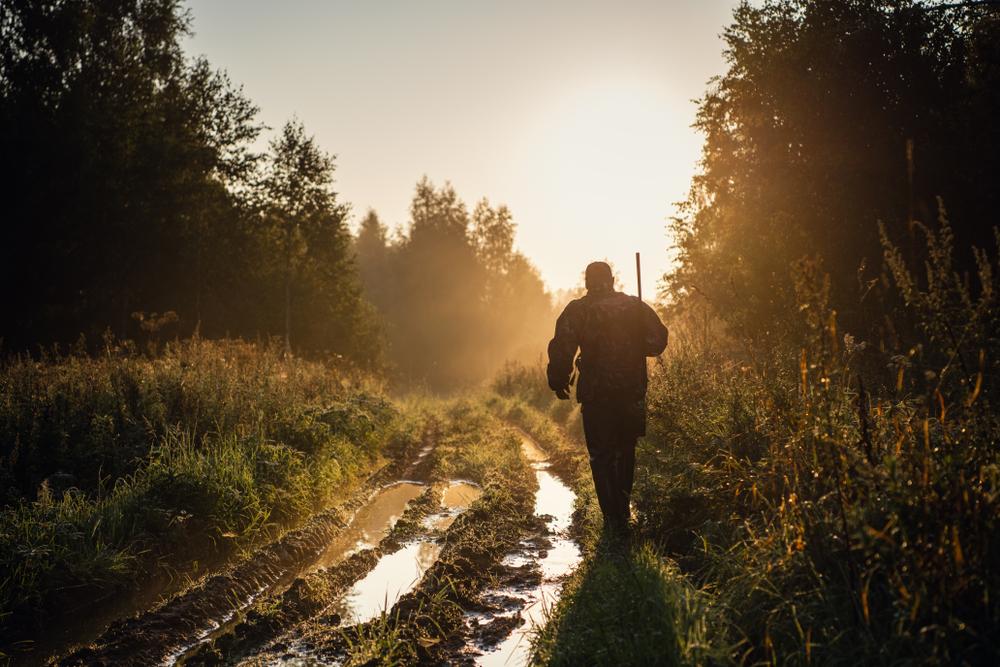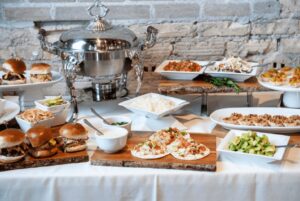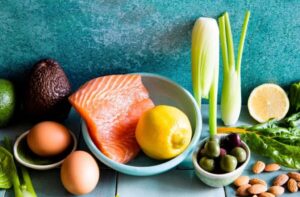Conventionally farmed meat available at the grocery store is convenient, but you’re not always getting the best product. Some grocery stores are broadening the types of meat available, including offering more humane and sustainable options like free-range and grass-fed animal products. However, those options don’t come cheap, and your family may be unable to afford the quality of meat you desire. Hunting for your food may seem time-consuming or too expensive, but hunting with the right knowledge and equipment is an affordable alternative to purchasing meat from the grocery store.
Camouflaged clothing and ground-level or elevated hunting blinds can help your hunt be more successful, so you’ll always be able to provide your family with more sustainable and humane food that tastes great. Hunting provides you with more than just economic benefits. Wild game meat is healthier and better for the environment, and it tastes better than conventionally farmed animals. If you are new to hunting, check out ShadowHunterBlinds.com for great hunting blind options and keep reading to learn the benefits of hunting for your own food.
1. It’s a Humane Food Source
Unlike CAFOs and other industrialized livestock farms, wild animals have the opportunity to move freely and live in their natural environment. They forage based on their preferred diet and eat various foods instead of the one-size-fits-all feed at farms. Wild animals aren’t caged or housed with hundreds or thousands of other animals, making their life more humane and enjoyable. Some conventional farming and meat producers don’t care about the animal’s quality of life or how it’s killed before butchering. Animals are often raised and butchered quickly so the company can turn a higher profit. This practice can mean the animals don’t live out their average lifespan.
Hunting is a much more humane option for acquiring your meat. Animals are part of the natural cycle instead of being raised for profit. Accurate hunting ensures the animal is slain quickly and with little pain, demonstrating respect.
2. More Sustainable
Hunting is part of the natural order of the animal world. Wild animal populations need predators to help keep the populations balanced. Animals like deer have few natural predators left, causing the problem of overpopulation. Food sources may become scarce in areas with high deer populations, leading to starvation.
A higher number of deer in an area can also increase the number of car accidents they’re involved in. Deer-car crashes result in over 200 American deaths annually. Hunting helps keep animal populations like deer in check and reduces the potential for deer-related accidents. Hunting is also more sustainable and environmentally friendly than meat farming. Industrial farming creates air and water pollutants that can be harmful to human health. Animal waste produced by CAFOs can contain hazardous chemicals like methane, ammonia, nitrogen, and phosphorus.
Animal waste is stored in ponds at the farm before being spread on farm fields for disposal. This allows the pollutants to enter into the air and eventually contaminate nearby water sources. Chemicals like nitrogen and phosphorus can throw off the balance of nutrients in the water, creating large algae blooms and reducing oxygen available to marine life.

Source: shutterstock.com
3. It’s Less Expensive
Hunting for your own food is less expensive in the long term. There are upfront costs that include buying firearms and acquiring a hunting permit, but you save money overall by hunting your own meat instead of purchasing it from a store, even with these added costs. The USDA recommends 2-3 servings of meat per day, with a daily total of about 6 ounces of meat per person. Hunting just a few larger animals can provide an average family with enough meat for the entire year. One deer, one elk, and two turkeys yield just under 300 lbs. of meat. You can choose to hunt whichever animals you prefer, and you’ll get a variety of cuts from each one.
Compare that to the cost of purchasing 300 lbs. of meat from the grocery store, and it becomes apparent that hunting for your own food offers a financial advantage. Currently, the average price of beef is between $5.05 and $7.13 per pound, depending on the cut. Even at an average price of $6.00 per pound, buying 300 lbs. of beef from the grocery store will cost you $1,800. If you have a big family, those costs increase further. A few successful hunting trips mean you can feed your family for the entire year without running up your grocery bill.
4. It Tastes Better
What the animal eats affects how they taste. Wild animals forage for food and eat a large variety of plants, grasses, nuts and seeds. Conventionally farmed animals tend to get the same diet throughout their lives. These foraged foods eaten by wild game add flavor and complexity to the taste of the meat. Game and wild animals eat the foods they like and aren’t forced to consume foods that don’t naturally appear in their diet. Factory-farmed cattle are often fed corn, a grain they don’t usually eat, because it helps them grow and fatten up faster for the butcher. Hunting for your own food will provide you with healthier proteins that will surely improve those staple venison recipes!
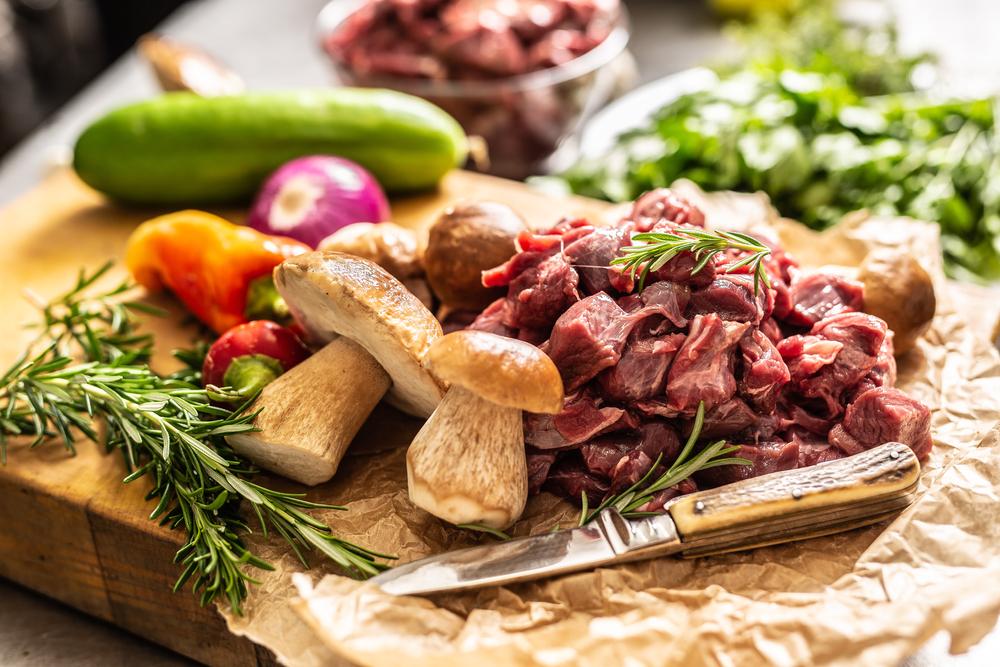
Source: shutterstock.com
5. It’s Healthier for You
Commercially produced animals can have hormones and antibiotics added to the food they are given. Animal feed can also contain ingredients made with pesticides or GMOs. Wild animals are free from all these additives. They haven’t been given excessive antibiotics or food containing GMO ingredients.
The variety in a wild animal’s diet means their meat has more vitamins and nutrients like iron and zinc from food sources not found in the diets of conventionally farmed animals. The meat from a wild animal contains more heart-healthy omega-3 fatty acids than farmed animals since they naturally eat more grass. Wild game is also leaner than conventionally farmed meat. It contains less saturated fat than grain-fed farmed animals and has higher protein content. Wild animals contain 0.5-4.0% fat in their meat, while conventionally farmed animals typically have 25-30% fat.
6. You Get to Be a Part of Nature
Hunting gives you the chance to leave your normal life behind and connect with nature. Instead of the passive act of picking up a package of meat in the grocery store, you can spend time immersing yourself in nature and providing food for your family. You’re an active participant while hunting for food, and you’ll feel pride when your family cooks and enjoys a meal harvested from your hard work.
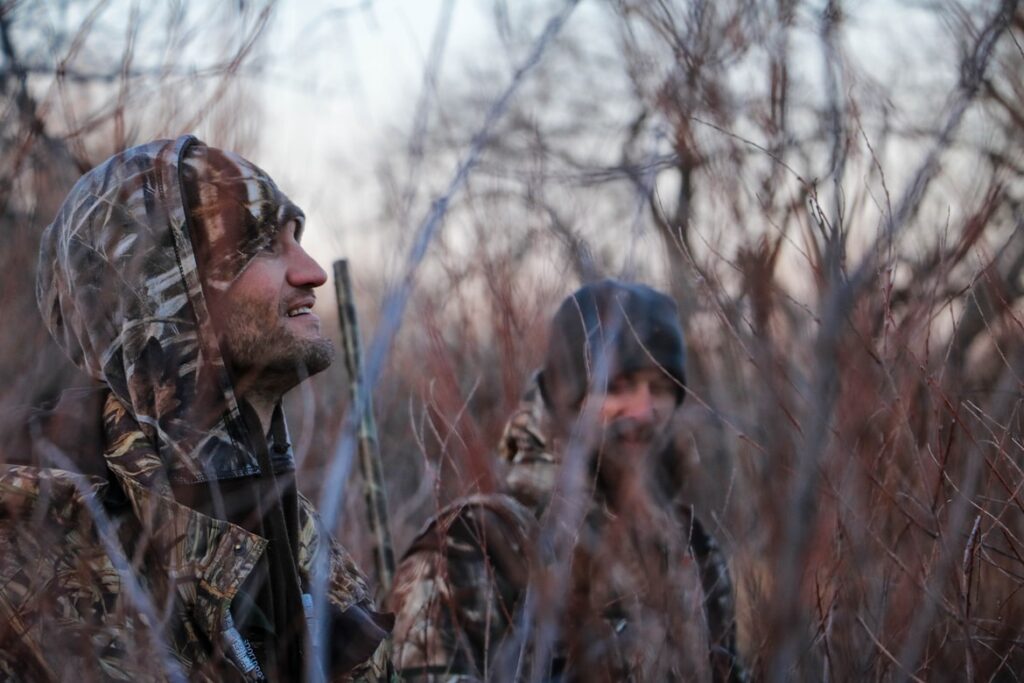
Source: unsplash.com
Start Hunting for Your Own Food
Hunting is healthier and more economical than buying all of your meat from the grocery store. Local hunting education programs can help you begin hunting for your own food. You’ll learn important safety tips and the steps your state requires for you to become a licensed hunter. Look for local hunting clubs to join so experienced hunters can pass along their skills and knowledge to you. You can also find helpful information in books and online about hunting strategies and the hunting clothing and equipment you’ll need.

